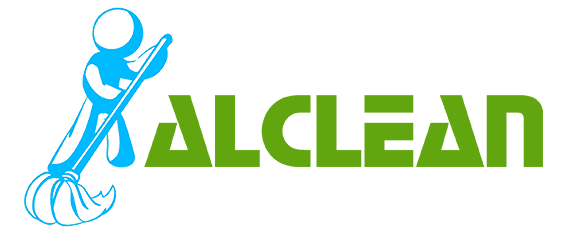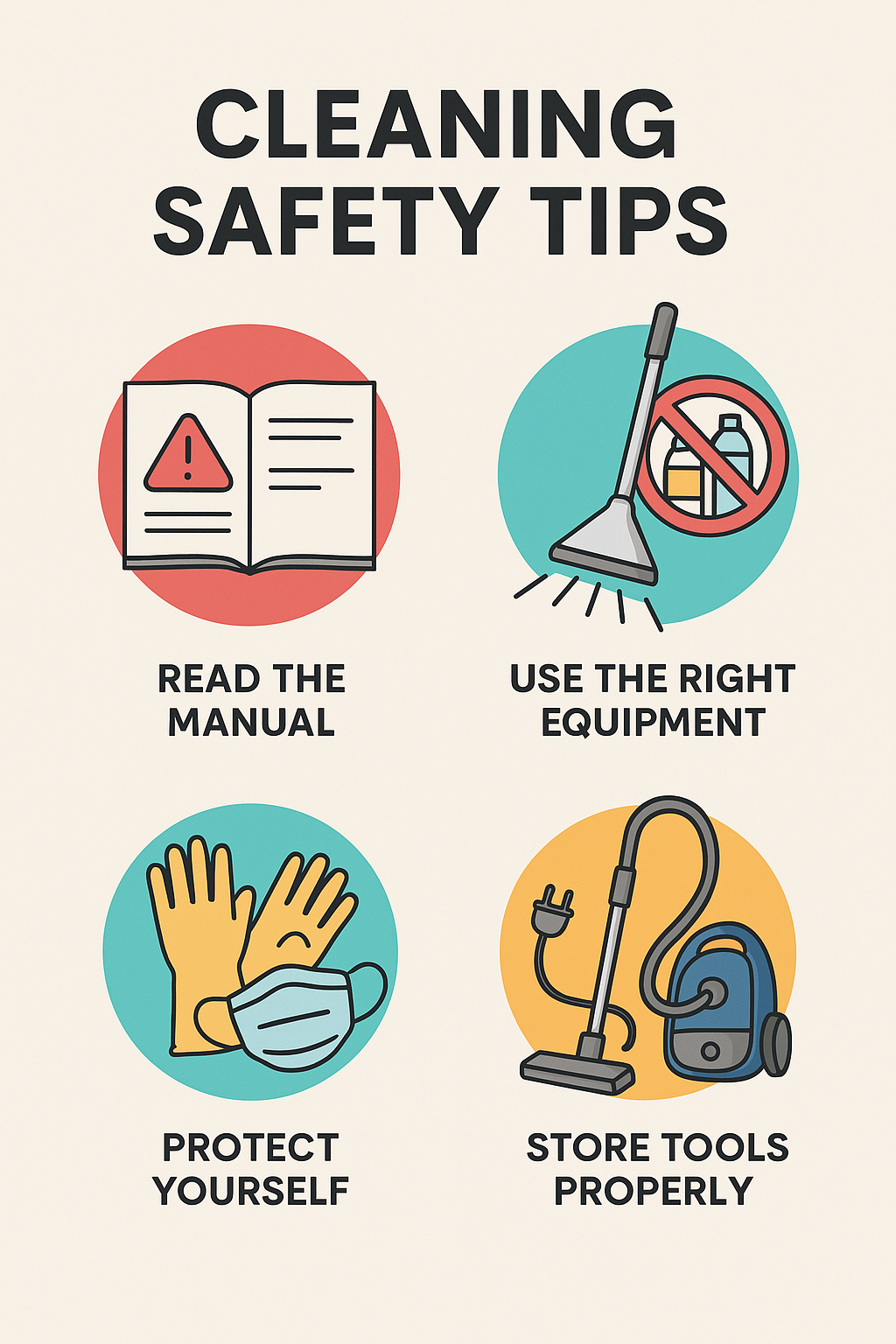Cleaning isn’t exactly anyone’s favorite task. But it’s necessary. And while most of us focus on getting the job done quickly, we often forget something crucial: safety.
Whether you’re using basic cleaning tools like brooms and buckets or more advanced home cleaning equipment like steam cleaners, vacuum machines, or electric scrubbers, handling them safely is just as important as using them effectively. A few smart precautions can protect your home, your health, and your gear.
Here are the most essential safety tips every household should know before powering up their next cleaning session.
1. Read the Manual–Yes, Really
Nobody loves flipping through instruction booklets. But when it comes to electrical cleaning equipment, the manual is your best friend.
Every brand and model operates a little differently. Some tools have built-in safety features; others might require specific storage or cleaning methods. Reading the manual helps you understand proper use, maintenance, and safety warnings–so you avoid misuse that could lead to damage or injury.
Why it matters: Misusing high-powered cleaning machines can cause electric shocks, overheating, or even short-circuits. A few minutes with the manual could save you from all that.
2. Use the Right Equipment for the Job
Not all home cleaning equipment is created equal. Using a steam mop on hardwood floors? That could warp the wood. Trying to scrub your carpet with a tile-cleaning brush? Say hello to fabric damage.
Always match the tool to the surface and task. When in doubt, look for product labels or manufacturer recommendations.
Bonus tip: Stick to non-abrasive cleaning tools for delicate surfaces like glass, stainless steel, and polished wood. It’s a simple way to prevent scratches and reduce wear.
3. Don’t Mix Cleaning Chemicals
While not a tool per se, cleaning solutions go hand-in-hand with most equipment–and mixing the wrong ones can be dangerous.
Never combine bleach with ammonia, vinegar, or other acidic products. The reaction can release toxic fumes that are harmful when inhaled, especially in closed spaces.
Safe cleaning practices always involve reading labels, using products in well-ventilated areas, and never mixing unless specifically instructed.
Why it matters: Chemical reactions from improper mixing can lead to serious health issues. Stick to one product at a time and give surfaces time to dry before applying another.
4. Protect Yourself First
Your home cleaning equipment is built to handle messes–but are you protected?
Wearing gloves, masks, and protective eyewear isn’t just for professional cleaners. If you’re dealing with strong disinfectants, mold, or dusty environments, PPE (personal protective equipment) helps reduce exposure and keeps you safe.
Also, wear proper footwear with grip. Slippery floors and power cords can lead to accidental slips if you’re not careful.
Pro tip: Keep a small “cleaning safety kit” handy with gloves, masks, and goggles. It’s one of the easiest ways to stay safe during deep-cleaning days.
5. Be Smart with Cords and Power
Corded tools like vacuum cleaners, electric polishers, and carpet washers are common in many households–but they come with their own risks.
Avoid running cords through wet areas, unplug equipment when not in use, and never yank the cord to disconnect from the outlet. Also, inspect cords regularly for signs of wear, fraying, or damage.
Tip: Practicing equipment handling safety helps extend the life of your devices and reduces the risk of electrical fires or shocks.
6. Store Your Tools Properly
After cleaning, it’s tempting to just stash everything back in a closet. But damp cloths, charged batteries, and uncleaned tools can become safety hazards over time.
Make sure all cleaning tools are dry before storage. Disconnect batteries, wipe down surfaces, and keep equipment in a dry, cool space–away from direct sunlight or heat sources.
Why it matters: Proper storage prevents mold, rust, and electrical damage. It also helps your tools perform better for longer.
7. Keep Equipment Out of Children’s Reach
This one’s especially important in homes with little explorers. Keep all cleaning machines, tools, and chemicals safely locked or stored on high shelves. Battery-powered tools should always be turned off and unplugged after use.
Better yet, designate a separate cleaning storage space that’s off-limits to kids and pets.
Final Thoughts
Cleaning doesn’t have to be risky–or overwhelming. By understanding how to properly use and care for your home cleaning equipment, you not only make your job easier but also safer and more efficient.
Next time you grab your vacuum, mop, or multi-surface steamer, take a moment to think about these tips. It’s a small step that makes a big difference in how well your tools work–and how safe your home stays.

